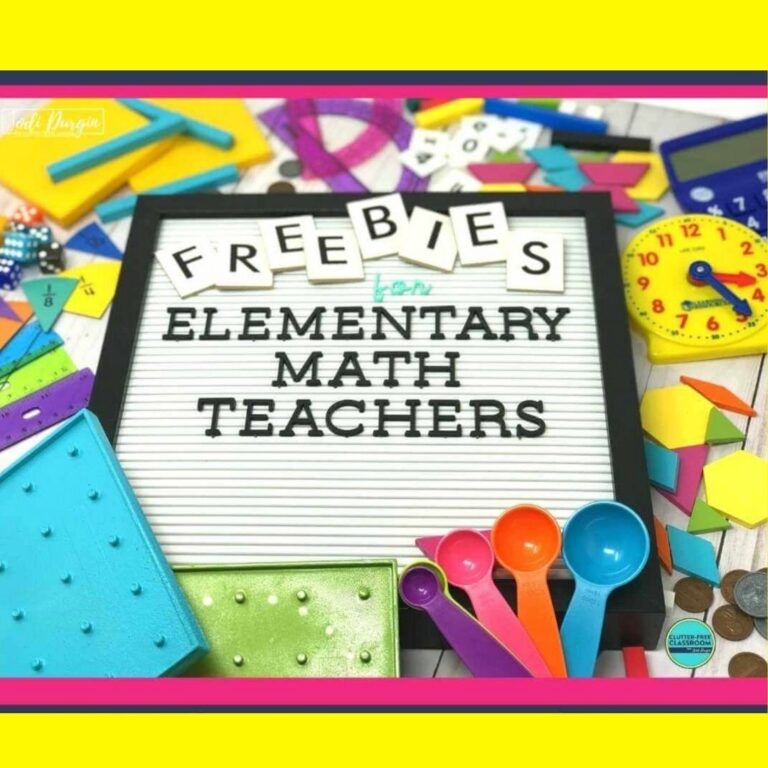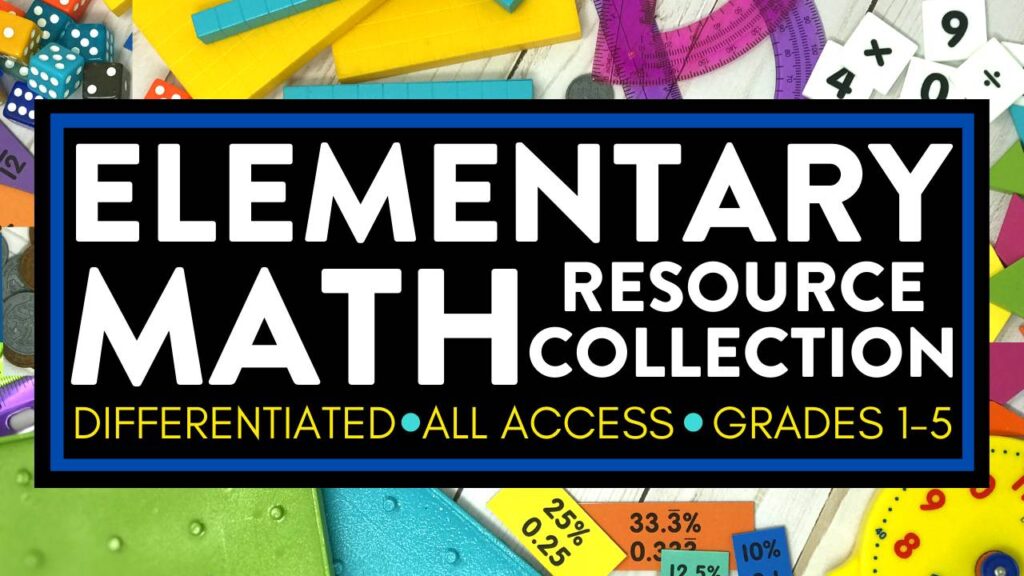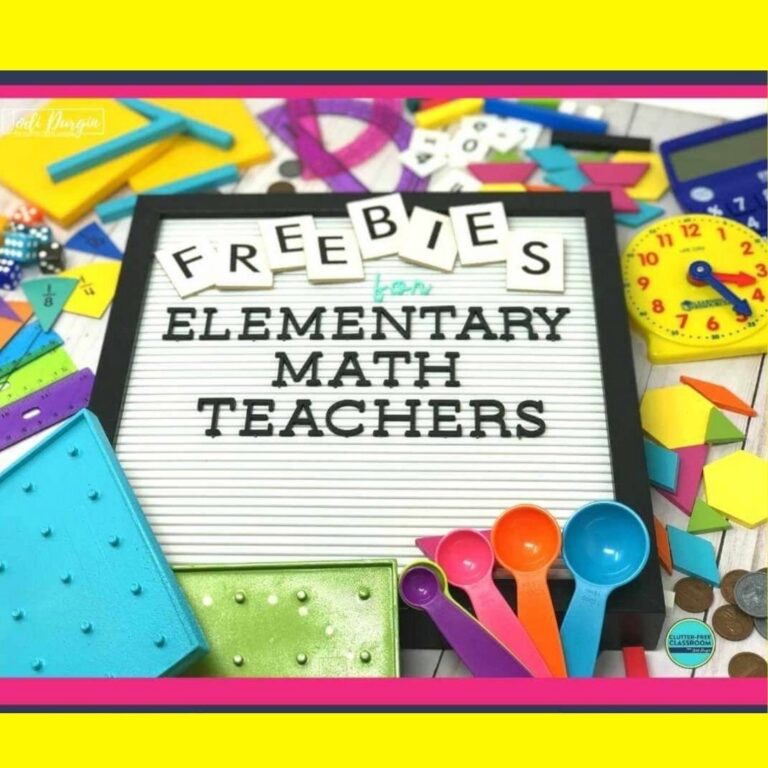Are your students’ families unsure of how they can support their child with their math development? Do they recognize the importance of their involvement? Parent participation is incredibly important in all aspects of a child’s education, but oftentimes parents are unsure of their role in their child’s education. The role of parents in education cannot be overstated!
It’s our responsibility as educators to remove barriers and extend a hand to invite families to engage in their child’s education. This growing partnership (parent-teacher relationship) leads to better learning outcomes for their children and an overall positive experience for families. Utilize the list of strategies for increasing parent participation below to help do your part and help your students reach their highest potential!
This blog post will address the following questions:
- What is parent participation in education?
- What is the difference between parent involvement and parent engagement?
- Why is parental involvement in education important?
- What barriers prevent parental involvement in education?
- What are some general parent participation strategies?
- How can I increase parent participation of families with children with special needs?
- What are some tips for increasing parent participation of families with a child who speaks English as a second language (ESL)?
- How can my students’ families support their math learning at home?
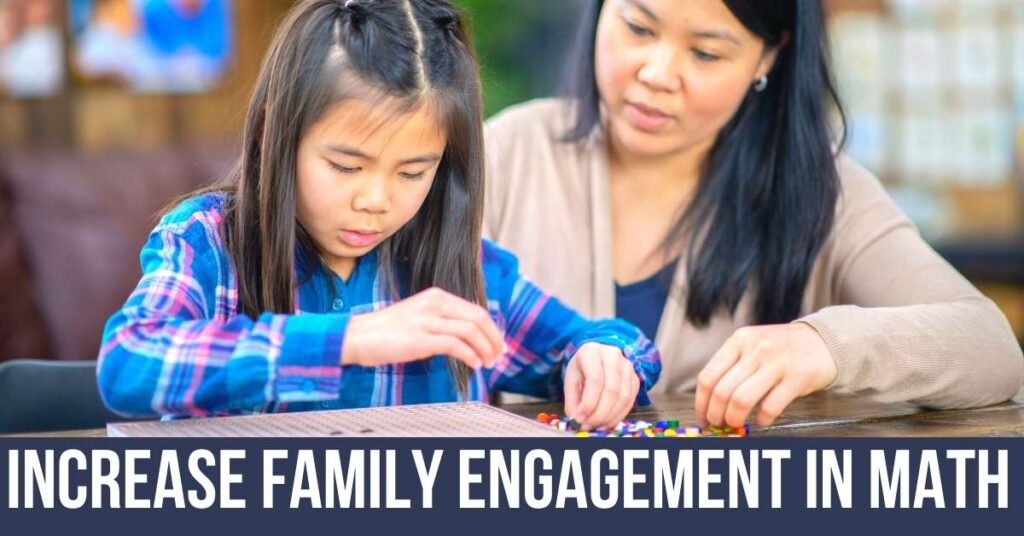
What is Parent Participation in Education?
Parent participation is often used interchangeably with family participation, parent involvement, family involvement, parent engagement, and family engagement. In general, they all refer to the participation of students’ parents or guardians in their children’s education.
It is the responsibility of both the school and the families to engage with one another and to both be active participants in a child’s education. However, the school must take on the load of laying the foundation, creating opportunities for engagement, communicating with families about these opportunities, and nurturing the relationship. Parents and teachers working together leads to a child’s future success in school and beyond.
What is the Difference between Parent Involvement and Parent Engagement?
Parent involvement and parent engagement are similar in that they both refer to how students’ parents and families interact with the school. Specifically, parent involvement is the approach where the school leads and the parents are expected to follow. Parent engagement, on the other hand, treats students’ families as partners and they lead together.

Why is Parental Involvement in Education Important in Math?
Increasing parent involvement in math is important because it impacts not only students’ attitude toward math and proficiency levels this school year, but also their future success in their math education. If a child’s family talks about math in a positive way, monitors homework and provides reteaching opportunities as needed, and incorporates math opportunities into their everyday lives, the child will thrive with these supports in place! In situations where parents and teachers are working together, good things happen!
What Causes Lack of Parental Involvement in Education?
There are several barriers that could prevent parents from being more involved in their child’s education. Here are 4 types of barriers:
Socio-Economic Barrier
Some of your students’ parents may not be able to actively participate due to their work schedules. Some of them may have two working parents or a single-parent who has two jobs. This may prevent them from being able to attend events that happen during the school day. It may also be challenging for them to come to a parent-teacher conference in person.
Language Barrier
Some of your students’ families may not speak English as their first language or may not speak English at all. This may prevent them from being involved if the right accommodations are not put in place (e.g. school newsletters in their native language and an interpreter during parent-teacher conferences).
Cultural Barrier
When your students’ families are from another country, they may not understand their role in the U.S. public school system. Other countries have different expectations for parents’ involvement in their children’s education.
Educational Barrier
Some of your students’ families may not have the confidence to actively participate because of their own educational levels. For example, some parents may be Illiterate and feel they lack the knowledge and skills to help with their children’s school work.
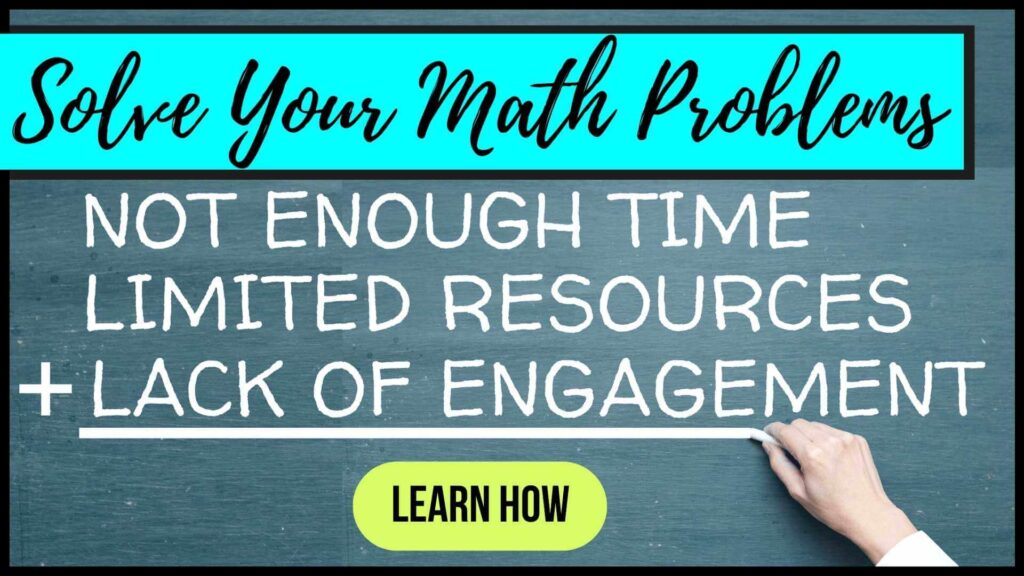
20 Ways to Promote Family Involvement in Math
Here are 20 family involvement strategies to help you promote and improve family engagement in your classroom and build the parent teacher relationship:
- Call, email, or write a note to students’ families to update them on their progress.
- Encourage open communication.
- Send home newsletters to keep families informed on what their child is working on in math.
- Host an informative math night at your school to provide information and resources to families.
- Send home articles about how families can support their child.
- Explain the similarities and differences between math when they were in school and math now.
- Send home resources for families to use to help their child practice math skills at home (e.g. flashcards).
- Host math nights where students can come and play games and encourage parents to help you plan the events.
- Send home summer work to maintain math skills.
- Host a workshop that teaches families how to support their child at home.
- Create and send home a survey to families asking for feedback on how math homework is going at home and if they need additional support or have any questions.
- Invite parent volunteers to help during math time by teaching students how to play a game during a center.
- Recommend apps and websites to use at home.
- Invite families to observe a math lesson.
- Assign homework that requires students to initiate conversations with their family about math.
- Invite family members to come in and discuss how they use math every day in their career.
- Require a family member to sign math homework.
- Invite families on math field trips.
- Model a positive attitude toward math when talking to families.
- Send home a list of board games that practice math skills.

5 Tips for Parent Participation in Special Education
Parent participation is important for all students; however, it is especially important for students with special needs. Parent participation in special education is critical to the success of elementary students with learning differences. Here are 5 strategies for increasing parent participation of children with learning differences:
- Make contact at the beginning of the school year so parents know that you are aware of the IEP and the accommodations and modifications within it.
- When communicating with families, start the conversation with a personal anecdote about something the child did that day. It’s important to show that you know the child and like them. This will immediately relax the parent.
- Act as a liaison for parents as needed with regards to setting up communications with service providers. For example, if a parent has a question about their child’s speech services and brings them up during a call with you, then contact the speech pathologist and let them know that the parent has questions and would benefit from a phone call.
- Invite service providers to your parent teacher conference to alleviate the number of meetings and calls parents need to make.
- During IEP meetings, it is helpful to be the first provider to share information about the student. Be sure to start the conversation by talking about the students’ strengths.
5 Tips for Parent Participation in ELL Education
Parent participation is important for all students; however, it is especially important for students who speak English as a second language. Here are 5 parent engagement strategies for parents of ELL students that will help you build the home and school connection:
- Learn a few common phrases to show that you respect and appreciate their language.
- Translate all of your written communications into their native language.
- Use an interpreter during parent teacher meetings.
- Find a way for them to share their talents with your students (e.g. teaching a cultural dance or cooking a special meal).
- Utilize bilingual staff in your school building who speak the same language as the family.

10 Ideas for How Parents Can Help with Math at Home
Parent teacher conferences are a great time to share some quick parent involvement math activities. You can also share these ideas in your classroom newsletter to encourage your students and their families to practice math at home together.
Here are 10 ideas you can share with your students’ families:
- Make math fun and incorporate it into everyday experiences.
- Use math talk.
- Give your child the opportunity to problem solve and think critically before jumping in and helping.
- Encourage your child to persevere through a math problem.
- Read picture books that have math concepts embedded in them.
- Practice money when you go grocery shopping (e.g. If we have $5, can we buy 2 jars of jelly for $2.45 each?).
- Practice money when you go toy shopping (e.g. The toy you want is $25, but it is on sale for 20% off. How much does the toy cost now?).
- Practice money by having them count your change at home.
- Practice time throughout the day (e.g. If it is 1:30 now, what time will it be in a half hour?).
- Sing songs about math concepts.
Math Resources for 1st-5th Grade Teachers
If you need printable and digital math resources for your classroom, then check out my time and money-saving math collections below!
Free Elementary Math Resources
We hope these ideas related to increasing parent participation in math is helpful and would love for you to try these math resources with your students. They offer students opportunities to practice grade level concepts and skills in fun and engaging ways. You can download worksheets specific to your grade level (along with lots of other math freebies) in our free printable math resources bundle using this link: free printable math activities for elementary teachers.
Check out these other math resources!
- 1st Grade Math Resources
- 2nd Grade Math Resources
- 3rd Grade Math Resources
- 4th Grade Math Resources
- 5th Grade Math Resources


